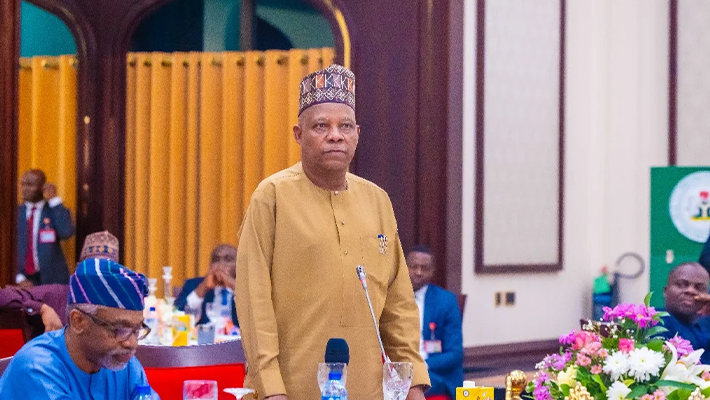
Vice-President Kashim Shettima has unveiled plans to improve nutrition indices across the country.
It is a plan of action to use traditional and religious leaders to educate their followers on the risk factors associated with malnutrition.
Shettima, who unveiled the plan at a high-level dialogue on nutrition at the Presidential Villa, called on faith and traditional leaders to champion the effort in their communities.
Sharpedgenews reports that the theme of the one-day dialogue was, “Faith Leaders as Catalysts for Enhanced Human Capital through Nutrition.”
The event was organised by the National Council on Nutrition (NCN) and the World Bank-assisted Accelerating Nutrition Results in Nigeria (ANRiN) Project.
The Vice-President stressed that Nigeria’s future readiness hinges not just on food abundance but on the nourishing quality of its food supply.
“We must proclaim to the world that our commitment to producing food of unparalleled richness is not rhetoric.
“This gathering is a solemn pledge to safeguard our well-being and preserve the legacy of generations yet to come.”
Shettima restated President Bola Tinubu’s commitment to prioritise nutrition as part of Nigeria’s food security drive.
“President Bola Tinubu has demonstrated his commitment to prioritising nutrition as an integral component of our quest for food sufficiency.
“This is our inspiration to implement quality, cost-effective nutrition services.
“From providing support to pregnant and lactating women to ensuring the well-being of adolescent girls and children under five years of age.
“President Tinubu’s vision has propelled us towards a future where every Nigerian has access to the nourishment they need to thrive.”
Shettima, however, stressed that the government cannot succeed alone, saying “we depend on the support and guidance of those who wield influence within our communities to drive this change.”
He urged faith and traditional leaders to champion proper nutrition practices in their spheres, integrating nutrition education into places of worship and cultural gatherings.
“Your influence is indispensable. We believe that, regardless of the quality of ideas we bring to the table, our efforts will fall short without your participation and endorsement.
“This is an avenue to reassure you that we are committed to more than just talk; we will take tangible action by reaching out to vulnerable and disadvantaged groups, including pregnant women, children, and the elderly.”
Shettima thanked federal ministries and partners like the World Bank for supporting the nutrition drive in the country.
“Together, let us stand as beacons of hope, leading the charge towards a healthier and more prosperous tomorrow for all,” he said.
Earlier, the Minister of Budget and Economic Planning, Sen. Atiku Bagudu, said malnutrition and related challenges had over the years negatively impacted human capital development in the country.
For his part, Coordinating Minister of Health and Social Welfare, Prof. Muhammad Pate, said the engagement with faith-based leaders was not just a dialogue but a clarion call for action to address one of society’s most disturbing challenges.
Pate called on religious and traditional leaders to leverage their network and influence in society to support the government in combating hunger and malnutrition.
He described faith-based leaders as the backbone of their communities, hence their importance in improving the nutritional outcomes in their various domains.
In their separate remarks, the Sultan of Sokoto, Muhammadu Abubakar III, and the President of the Christian Association of Nigeria (CAN), Rev. Daniel Okoh, pledged the commitment of their communities and congregations to the efforts to combat hunger and malnutrition in the country.